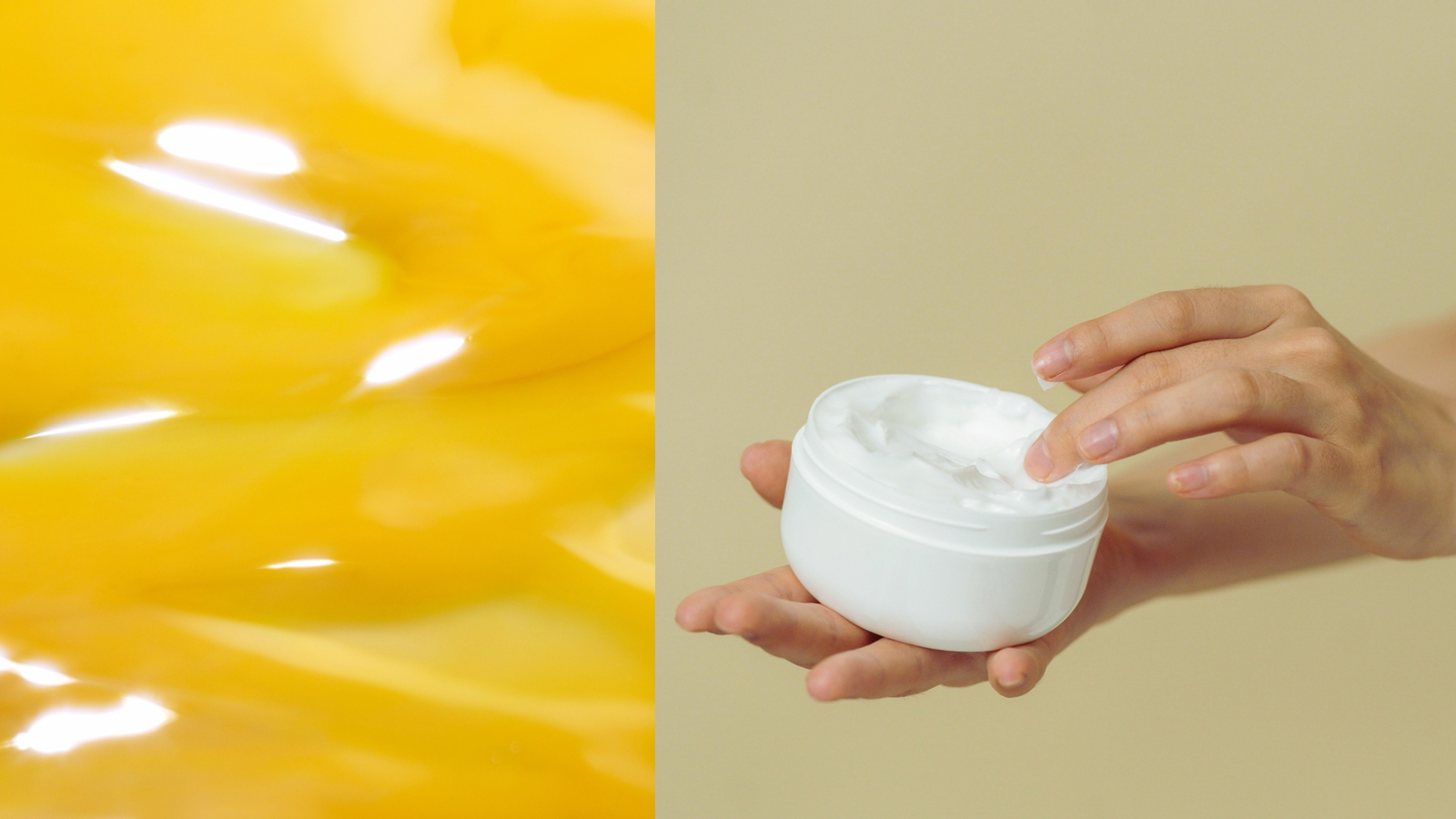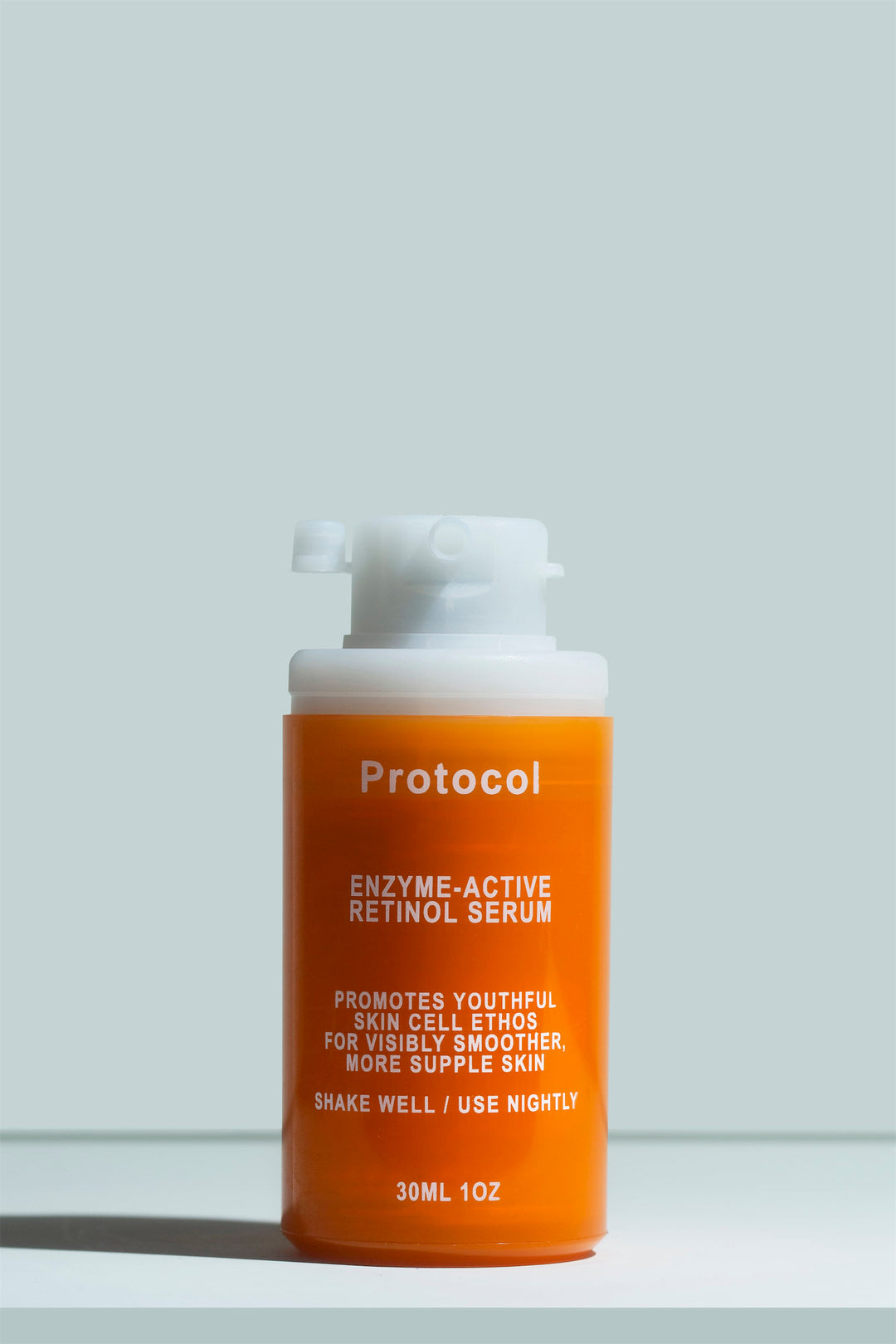Retinol Serum vs Cream: Why They’re Different + Why It Matters

Retinoids are the most powerful skin-renewing agents found in nature. They can reverse signs of aging, improve oily skin, lighten dark spots, soften texture, unclog pores, and more! While we absolutely recommend incorporating retinol into your skincare routine, there are a lot of options to choose from.
It can feel overwhelming to sift through hundreds of different retinol products. Today, we're comparing retinol serum vs retinol cream to help you choose the best product for your skin.
Retinol basics
Retinol is an important part of any skincare routine, regardless of your age or gender.
If you're already dealing with skin issues such as acne, scarring, or wrinkles, retinol is the best topical product to fade them away. Retinol works by correcting the way skin cells behave and speeding up their turnover rate.
Even if you don't have any specific issues, retinol prevents signs of aging and helps maintain healthy skin function, to keep your skin looking its best in the years to come. There are different types of retinoids to choose from, of varying strength levels - in the cosmetic world, retinol and retinal are the two current stars.
Retinol goes through two steps of conversions to become retinoic acid, which is the active form of vitamin A on the skin. Retinal with an “a” only goes through one conversion. It’s simultaneously extremely gentle yet the most transformative of all the cosmetic retinoid options.
Retinol serum vs cream
Before you narrow down the exact brand you want to purchase retinol from, you'll have to figure out if you want to go with a retinol serum or retinol cream. Here’s what you should know about each of these options.
What is retinol serum?
A retinol serum is a skincare product with a thin, light consistency. Thinner formulas have a better skin absorption rate, which means that they penetrate deeper, deliver results faster, and support all skin types when paired with a moisturizer. They’re the ideal vehicles for active ingredients and usually contain higher percentages.
It’s because of this enhanced efficacy that most retinoids come as serums. Without heavy occlusives, retinol serums can impact the skin more rapidly, and deliver faster, more noticeable results.
Most skin types are perfectly fine using a retinol serum. However, once your retinol serum sinks into your skin, you’ll always want to follow it up with a hydrating moisturizer. As long as you remember to do that, you shouldn't have anything to worry about!
What is retinol cream?
Retinol creams are usually moisturizers that also contain a small percentage of retinol. They're often marketed as "anti-aging" creams or as night creams, although occasionally you may come across day creams that contain both SPF and retinol. The texture is usually indistinguishable from other moisturizers.
Retinol cream formulas usually contain the essential blend of moisturizing ingredients that contribute to skin hydration, such as water-attracting humectants, skin-smoothing emollients, and moisture-binding occlusives.
Occlusives in skincare are designed to sit near the surface of the skin where they create a water-blocking layer that seals moisture inside. They don’t absorb as much into the skin, so the key issue with retinol creams is an overall slower rate of absorption and skin impact.
Additionally, most brands don’t disclose the percentage of retinol in their creams, and the actual amount of retinol is often negligible.
If you are considering purchasing a retinol cream, pay attention to the packaging. Retinol is very unstable when exposed to light and air, which is why it’s best packaged in an airtight container.
Note: it's typically recommended to only use retinol at night, as that’s when your skin is primed for repair and renewal. The molecule is quite sensitive to the sun, so there is also the potential that daytime retinol won’t be as effective.
What's the difference between retinol cream and retinol serum?
To summarize, these are the main differences between retinol serums and creams, from texture to skin benefits and efficacy:
|
Retinol Serums |
Retinol Creams |
|
|
Retinol serums & creams have adjustment periods
Keep in mind that introducing retinol into your skincare routine may require an adjustment period of a few weeks, depending on the formula. If you’d like to avoid irritation, the best way to use retinol at first is slowly and gradually, just 2-3 times a week.
It's completely normal to experience some dryness, breakouts (a process called skin purging), and light peeling, especially with stronger retinoid formats. This is just your skin getting used to the amazing new benefits of retinol!
It doesn't mean you have to switch from a retinoid serum to a retinoid cream, just give your body time to adjust and take it from there.
FAQ
Can I use both retinol serum and cream?
You shouldn't use both retinol serum and retinol cream — you should pick one or the other. For a higher skin impact and faster improvement to fine lines and textures, retinol serums are the better choice. Just make sure to follow them up with a moisturizer.
What retinol concentration should I choose?
Retinol strengths can vary from product to product. The best balance of gentleness and efficacy comes from retinal, which is ideal to start with at a 0.1% concentration. If you’re starting with retinol, which is weaker, you will likely do just fine with 1% to 2%. If your skin is very sensitive, you can start with an even lower percentage like 0.3%-0.5%.
What do I do if my retinol isn’t working?
Unfortunately, many retinol products don’t work because of poor formulation or too much time on the shelf causing the retinol to oxidize and lose its potency.
If you haven’t seen any signs that your retinol is working after several weeks, consider whether your retinol is truly packaged in an airtight, UV-proof container, and whether the brand discloses the quantity of retinol in the formula. Switching to a serum is a good starting point if you have been using a cream. If you’ve been using a serum, consider adjusting to a formula with a higher retinol percentage, or make the switch to retinal.
What's the difference between retinol and retinaldehyde?
Retinol is a form of vitamin A that converts into retinaldehyde (i.e., retinal) once it comes in contact with the skin. The key difference between retinol vs retinaldehyde is that retinaldehyde has a more noticeable impact on the skin despite being equally as gentle as retinol.
Looking for an effective retinol serum?
You've come to the right place. We've dedicated countless hours to creating the best retinol serum on the market.
Our formula contains 0.1% retinal (with an "a"!) instead of retinol, for faster, more direct skin impact and ultra-gentle, non-drying effects. Protocol Skincare also uses a patented containment technology (previously designed for the nuclear and aerospace industry) to bottle our retinal in an oxygen-free and UV-free environment.
True, effective retinal is highly sensitive to heat and light, which is why this advanced bottling technique is rare (yet absolutely necessary) to deliver the promised product. Our product is full of pure, renewing power, so if you’re still on the hunt for an effective retinoid, consider giving it a try.




